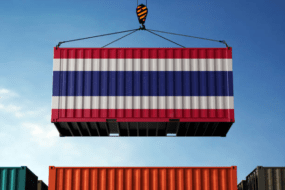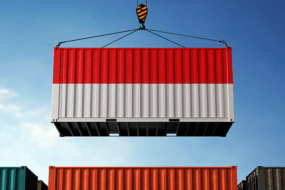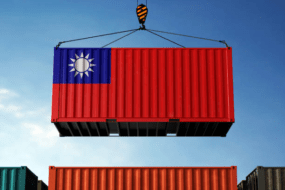- Home
- Trade News
- Navigating Food Supply Challen ...

Southeast Asia has long grappled with the vagaries of El Niño, a climate phenomenon known to disrupt agricultural landscapes, particularly rice production. These periodic episodes have often driven up food prices in the region, underscoring the need for resilient supply chains and risk mitigation strategies. However, the latest challenge faced by Southeast Asian nations—a ban on rice exports imposed by India—presents a unique set of circumstances that require innovative solutions.
Understanding the Uniqueness of the Rice Export Ban
Unlike crises caused by factory closures or sudden spikes in consumer demand, India’s export ban on white non-basmati and broken rice was a deliberate measure aimed at curbing soaring domestic prices. This export ban has reverberated across the global rice market, sparking concerns of shortages and inflationary pressures. Panic buying is already evident, with supermarket shelves being rapidly depleted. The situation necessitates a rethink of supply chain strategies to ensure resilience in the face of such disruptions.
Lessons from Southeast Asia: Building Resilient Supply Chains
Southeast Asian countries have not been idle in the face of past El Niño events. They have invested in risk mitigation and reduction measures that can be applied to their supply chains. These measures include:
Diversification of Suppliers and Raw Materials: In response to India’s rice export ban, businesses and consumers should consider alternatives to rice. For instance, cassava can serve as a substitute product. Moreover, companies can reduce their dependence on a single supplier by diversifying their sourcing across multiple countries and suppliers.
Replenishment of Stock: Many Southeast Asian nations maintain safety stocks to meet short-term demand fluctuations. Initiatives like the ASEAN Plus Three Emergency Rice Reserve (APTERR) have been established to stabilize rice markets in times of crisis. While carrying more inventory can increase storage costs, companies can optimize their inventory by calculating the right location and quantity of goods, leading to more efficient stock management.
Improving Cooperation: The formation of ASEAN has allowed Southeast Asian countries to collectively minimize risks through effective information sharing and coordination of efforts. Similarly, businesses should enhance visibility and collaboration with their supply chain partners, fostering strong relationships with key rice suppliers.
A Global Ripple Effect on Rice Prices
India’s export ban has already caused rice prices to surge in key exporting countries such as Thailand and Vietnam, with an approximate 20% increase. Traders anticipate that other exporters may follow suit, imposing supply curbs to safeguard domestic food security. Importers are left scrambling to secure shipments in this increasingly uncertain market.
In Conclusion
Southeast Asia’s experience with El Niño and the current disruption caused by India’s rice export ban underscores the need for adaptable and resilient supply chains. By implementing measures like diversification, stock optimization, and improved cooperation, both nations and businesses can better navigate the challenges posed by volatile global markets. As we confront the complexities of a changing world, building sustainable and robust supply chains becomes paramount for securing food security and stability in the region and beyond.
If you want to read more about India’s rice export ban, click on this link.
The most trustable and reliable source for Trade Data.
TradeData.Pro is a reliable and trustworthy source of trade data proudly made in Singapore, a country known for its stable political climate and trade-driven economy. Presented by Commodities Intelligence Centre, a government-linked company and a joint venture of Zall Smartcom, SGX, and GeTS, TradeData.Pro has received positive feedback from the market since its launch in 2018 for its extensive coverage, affordability, and fast response. The platform has been awarded the Singapore Quality Class in 2020 and the Stevie Award Gold in 2021.
Traditionally, obtaining critical data to reveal trends, identify market opportunities, track competitors, buyers, and suppliers, and better understand the potential of the supply chain has been a challenge. However, the detailed shipment information that is part of government import and export filing requirements does exist and forms the core of global trade. TradeData.Pro has gathered and packaged this information as business intelligence, which helps companies understand the flow of goods across borders and features the world’s largest searchable trade database. TradeData.Pro reviews, standardizes, and cleans data and delivers it in an intuitive format, making it easier for businesses to access.
Businesses interested in staying updated on Vietnam, the hottest industry lately, can access all relevant information on the TradeData.Pro platform. They can find the exact product they’re interested in by checking out the trade database demo at https://tradedata.pro/asia-trade-data/vietnam-import-export-data/. To learn more about accessing new markets, visit https://tradedata.pro/trade-database-demo/.
Additionally, businesses can check out this article to learn how to use TradeData.Pro to access Global Trade Markets: https://blog.tradedata.pro/v3-new-upgrade-of-world-leading-global-trade-data-platform/. To understand how TradeData.Pro works, watch the video below or visit https://www.youtube.com/watch?v=tITfUvjs6Gc
Business Economy Export Global Import India International Trade Markets Opportunities Supplier Trade Data Pro Worldwide









3 replies on “Navigating Food Supply Challenges in Southeast Asia Amid India’s Rice Export Ban”
[…] Explore more on India’s import ban details here, and discover how Southeast Asia is tackling these challenges in the previous blog here. […]
[…] Navigating Food Supply Challenges in Southeast Asia Amid India’s Rice Export Ban: Get insights… […]
[…] Navigating Food Supply Challenges in Southeast Asia Amid India’s Rice Export Ban: Get insights… […]